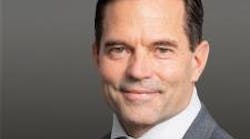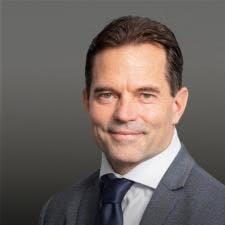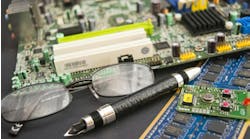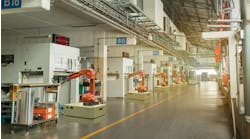New facility, new focus on speeding delivery of smart devices
Schneider Electric's Ken Engel
Schneider Electric recently announced the construction a new manufacturing plant in El Paso, Texas as part of a $100 million investment to increase production and speed the delivery of electrical products.
Schneider notes its new plant will produce customized low-voltage switchboards and is expected to be completed in late 2022, employing approximately 400 new employees. We wanted to learn more, so we connected with Ken Engel, senior vice president of global supply chain with Schneider Electric North America. Take a look…
Smart Industry: What is your role with Schneider Electric / your connection to this new facility?
Ken: I have direct responsibility and oversight for all manufacturing plants and distribution centers in Canada, the US and Mexico. I also oversee the many other aspects of the supply chain operation for the region, from planning and procurement to transportation and logistics to name a few.
This new manufacturing plant will actually be our fourth in El Paso, Texas and our 20th plant in the US. With the addition of this new plant, El Paso will become Schneider’s largest manufacturing operation in the US.
Smart Industry: Describe the new plant in El Paso? What emerging technologies are at play here?
Ken: Aimed to be completed later this year, the new El Paso manufacturing plant will be a 160,000 square foot state-of-the-art manufacturing facility and is analogous to some of our plants across our manufacturing network. It will be what we call an ‘engineer-to-order’ manufacturing plant and it will produce customized low-voltage switchboards and panelboards that distribute electricity to one or more sources in commercial settings, whether it be for hospitals, data centers, or infrastructure.
Like many of our other plants, we will deploy Schneider’s EcoStruxure open software architecture, 4IR technologies, edge analytics and predictive analytics to drive energy efficiency and sustainability goals and achieve cost savings. We’ll also use AVEVA’s discrete lean-management software, which will reduce any unplanned machine downtime as it will give us increased visibility into the plant’s operation.
Smart Industry: Why is the speed of delivering electrical products critical in the digital era? What boosts speed to market? What hinders?
Ken: Let me answer it this way: Schneider Electric has a global supply chain and we want to leverage its capabilities and its scale. We also have learned that we need to have a balance between global and local approaches. We also need to move toward a more resilient supply chain. Resiliency is a philosophy and, in the current disruptive world, a resilient supply chain wins business and growth. This is one of the lessons that the pandemic taught us.
Plus, we have to leverage digitization because being more digital helps to access real-time information to make the right decisions at the right time. The efforts combined help speed the delivery of products.
As for what hinders speed to market, look at the reliability of global transportation over the last year and a half or so. Sea-Intelligence covers schedule reliability across 34 different trade lanes and 60+ carriers and reported late last year that schedule reliability continued to be under 40% in 2021. Couple that with inflated transportation costs and those challenges led us to simplify and localize our supply chain where it made the most sense.
Smart Industry: What most excites you about this project?
Ken: This new manufacturing plant is all about achieving better customer satisfaction when you boil it down to what matters the most. If we can get products into the hands of our customers more quickly, it’s a win-win for them and for us. Even with the supply chain constraints that we’ve experienced since the onset of the pandemic—and we’re no different than many other companies who have experienced them—our Customer Net Promoter Score improved four points year-over-year. We’re doing something right and we’re going to get even better once this factory comes online. That’s exciting.
The other thing I’ll say is that we’re creating good paying jobs for about 400 people in El Paso and estimate that we will bring an estimated $138 million in economic value to the community. Schneider will soon employ about 1,600 people in El Paso, TX making us one of the largest private employers in the region. I’m proud of that, too.




